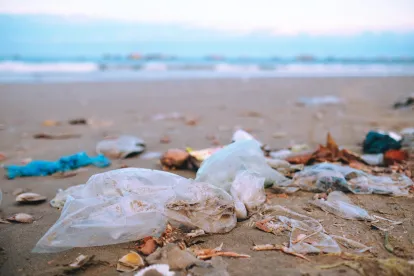On March 26, 2020, the United States Environmental Protection Agency (“EPA”) announced “a temporary policy regarding [its] enforcement of environmental legal obligations during the COVID-19 pandemic” (“Policy”). Under the Policy, EPA is able to exercise significant discretion in its enforcement of environmental rules for certain noncompliance resulting from the pandemic. EPA cites potential worker shortages, travel and social distancing restrictions, and resultant constraints on facilities on laboratories as reasons for the implementation of the Policy.
How Does the Policy Apply?
-
The Policy will apply retroactively to March 13, 2020.
-
The Policy is temporary and subject to modification by EPA. EPA will post a notification on its website at least seven days before terminating the Policy.
-
The Policy will apply “to actions or omissions that occur while [the] [P]olicy is in effect even after the [P]olicy terminates.”
-
The Policy does not apply to: “[c]riminal violations or conditions of probation in criminal sentences”; imports; activities pursuant to enforcement instruments under Superfund and Resource Conservation and Recovery Act Corrective Action; or requirements “to prevent, respond to, or report accidental” releases and spills.
-
Entities still must comply with its environmental compliance obligations to the extent possible. However, in the event “compliance is not reasonably practicable,” entities should “[a]ct responsibly under the circumstances,” document how COVID-19 resulted in noncompliance, and “[r]eturn to compliance as soon as possible.”
-
Unless provided otherwise in the Policy, EPA will exercise enforcement discretion on a case-by-case basis for certain noncompliance (as further discussed below) that resulted from the COVID-19 pandemic.
What Relief is Available Under the Policy?
-
Routine Compliance Monitoring and Reporting By Regulated Entities. EPA generally “does not expect to seek penalties for violations of routine compliance monitoring, integrity testing, sampling, laboratory analysis, training, and reporting or certification obligations” where COVID-19 caused the noncompliance and the regulated entity provides EPA supporting documentation upon request.
-
Settlement Agreement and Consent Decree Reporting Obligations and Milestones. EPA generally will “not seek stipulated or other penalties for noncompliance” related to “routine compliance monitoring, integrity testing, sampling, laboratory analysis, training, and associated reporting or certification obligations” under EPA administrative settlement agreements or consent decrees entered into with EPA and the US Department of Justice (“DOJ”). As to consent decrees, courts will maintain jurisdiction and EPA will “coordinate with DOJ to exercise enforcement discretion with regard to stipulated penalties for the routine compliance obligations.”
-
Facility Operations. “EPA expects all regulated entities to continue to manage and operate their facilities in a manner that is safe and that protects the public and the environment.” However, the Policy sets forth specific procedures for entities to follow when COVID-19 related disruptions to a facility results in: “an acute risk or an imminent threat to human health or the environment”; a “failure of air emission control or wastewater or waste treatment systems”; the inability of a facility that is a generator of hazardous waste to transfer waste off-site; or the inability of a facility that is an animal feeding operation to transfer animals off-site. Where entities follow the Policy procedures, “EPA will consider the circumstances, including the COVID-19 pandemic, when determining whether an enforcement response is appropriate.”
-
Public Water Systems. EPA has “heightened expectations for public water systems” and “expects operators of such systems to continue normal operations and maintenance.” However, the Policy sets forth “tiers of compliance monitoring” to ensure safety of drinking water and to “prioritize prevention of acute risks.” EPA “will consider the circumstances, including the COVID-19 pandemic, when determining whether any enforcement response is appropriate.”
-
Critical Infrastructure. Where a facility is an essential critical infrastructure and EPA determines it is in the public interest, it “may consider a more tailored short-term No Action Assurance, with conditions to protect the public.”
Co-Authored by Linda Lee









 />i
/>i

